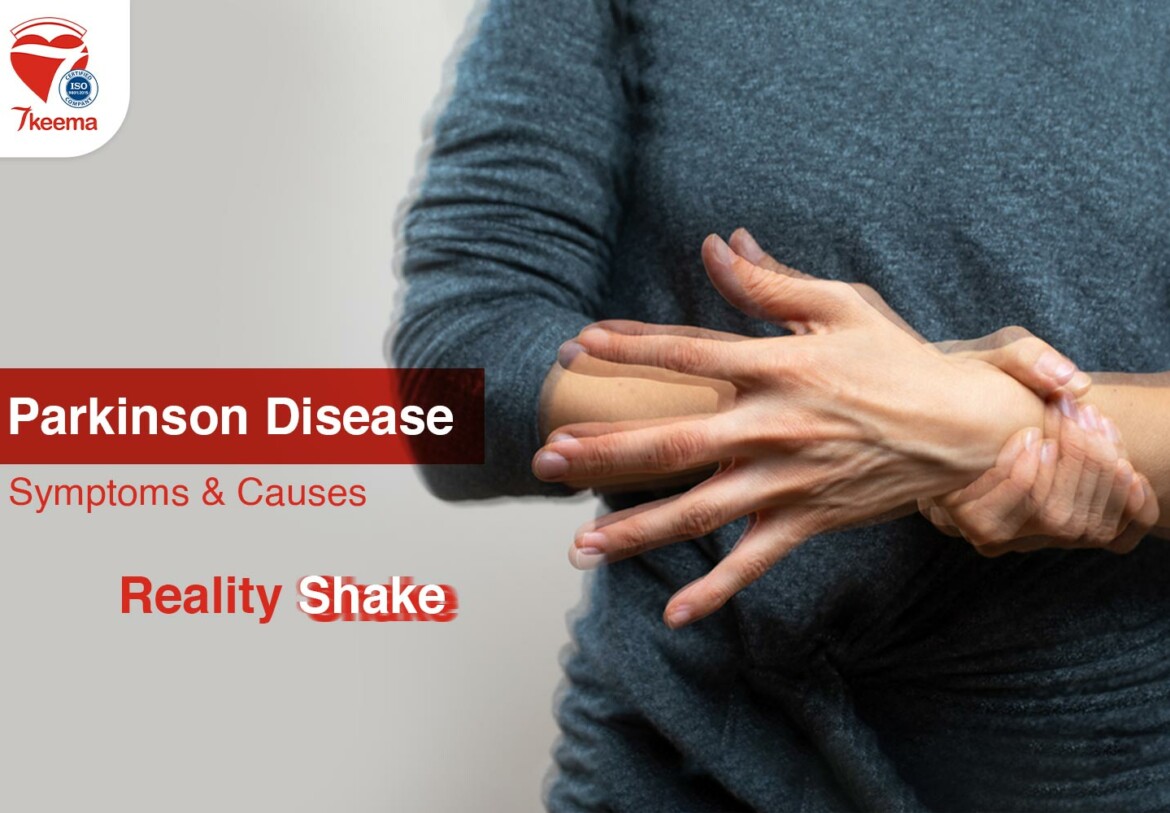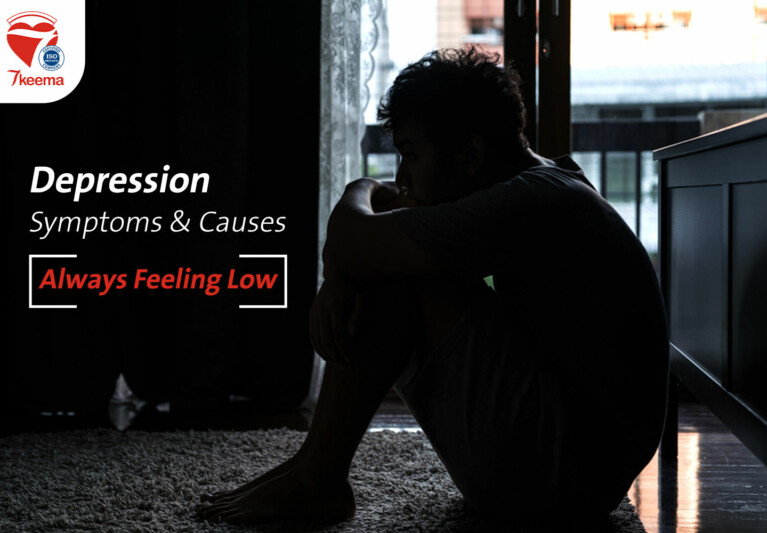We, humans, don’t mind anything until it affects our freedom of moving around freely and prevent from doing daily tasks and duties like we used to do. As much as we can mention, Parkinson’s disease couldn’t be ignored. Such a disease attacks the nervous system gravely, leading to many motion issues for the patient.
Most probably, Parkinson’s disease starts to represent a high risk from the mid-age class, rarely to harm through youth class. It starts to develop symptoms through some soft hand trembling, which couldn’t be so obvious. Then, it takes an increasing curve; more symptoms could be added to the list, such as the stagnant face and speaking issues.
Time makes the symptoms go more severe, which prevent the patient from having an everyday life and practising his daily activities. It’s unfortunate to claim that science doesn’t have a Parkinson’s disease treatment until this moment. However, we know that we have some technics and ways doctors and scientists could use to contain and help patients to overcome Parkinson’s disease to a certain level.
Meanwhile, Parkinson’s disease treatment would recommend having someone help, especially for severe cases and the elderly. Knowing that getting older would lead to many geriatric diseases, 7keema provides an elderly care service at home, efficient enough to maintain the elderly needs and help during the Parkinson’s disease treatment process.
Let’s go deeper into the Parkinson’s disease causes, symptoms, and treatment out of these points.

Parkinson’s Disease Symptoms
Symptoms could be evident in some of the shakes that could appear through arms, legs, and hands in general. Usually, symptoms develop through one side only of the body, then move to the other side, yet the first side would probably have more severe symptoms.
In fact, the Parkinson’s disease patient could stay ignorant of the reality of his disease for long times that could extend to years for some cases, as symptoms could be extremely mild and unnoticeable at the beginning.
Afterwards, the disease would rush up and start to be more straightforward and provoke more issues for the patient, whether on the health level or on his daily routine level, which sometimes requires asking for a home nursing service to provide the proper care.
For the elderly, the issue may be doubled, which could be a better reason to ask for elderly care at home. 7keema offers integrated home care for the elderly, including maintaining the geriatric phase signs.
So, let’s spread out the Parkinson’s symptoms to know how it could affect our lives.
Trembling & Shaking
It’s the most common and most known symptom of the disease, starting with one hand or even one finger. It probably makes the forefinger tremble first before extending to the whole arm. The finger would move forward and backwards involuntarily, known by Pill-rolling tremor.
Then tremors and trembling would go further into the patient’s body, reaching out every leg and arm, leading to a heavy step that could prevent the patient from moving around and having an everyday life.
Slow Movement
It’s a symptom built on the previous one. Limbs tremors would significantly affect the ability of motion, preventing moving around in reasonable steps.
For instance, Parkinson’s disease patients could take more time achieving any task or while doing any activity. Meanwhile, a simple act as walking could represent a considerable challenge.
Surprisingly, even if tremors are not that severe, the patient step and walking ability would be affected no matter what, which increases over time. The patient could reach a phase where he cannot take action after step anymore, and he should take one step at a time.
Rigid Muscles
Parkinson’s disease leads typically to muscle stiffness through the arms and legs, basically reaching out to the neck and back.
Most of the cases could face pain due to such symptoms, leading to even more issues in movement and acting normally.
Impaired Posture
The disease would lead to a stooped posture, preventing from standing upright correctly, which leads to an imbalance while moving and walking.
This symptom could have many more complications concerning bones, joints, and muscles; typically, it’s a sign that the disease is getting more severe and the case condition is getting worse.
Involuntary Moves Disorder
Every day, an individual makes millions of involuntary acts and movements, such as smiling, flickering, facial expressions, hand movements while walking, and more.
Parkinson’s disease could lower the rate of these acts in an obvious way, making the patient look like he doesn’t care with a stagnant face. These acts and moves would disappear in the long term, making it hard to understand his reactions and what the patient would mean.
Speech Changes
Parkinson’s is directly connected with speaking and managing any conversation. Words would come out unclear or uncompleted, with a monotone voice.
Going on, the disease would lead to having problems understanding the patient’s speech.
Writing Changes
The disease reaches a particular stage where the patient would lose the ability to write appropriately. His writings would come out unclear, too small, or uncompleted.
Focusing Issues & Dementia
A worst-case scenario could occur when the disease gets to its worst stages. The patient will suffer from dementia symptoms, have many memory problems, and develop what could be similar to Alzheimer’s disease symptoms.
From its side, 7keema offers many packages meant to give proper care to patients and the elderly at home through many home nursing services available and reachable through 7keema mobile application.

Parkinson’s Disease Causes
In fact, Parkinson’s disease causes are still unclear. Scientists do not have broad information concerning it. Yet, many theories and indicators could give us a glance at the real Parkinson’s disease causes.
The leading Parkinson’s disease cause is a lack of Dopamine in the patient’s brain due to cells atrophy responsible for producing it. Though, we still don’t have a reasonable list of the Parkinson’s disease causes, even with some brand new theories that refer to pollution and how our bodies absorb a lot of toxic materials from our environment. In contrast, another approach accuses our genes and heritage factors of playing a role in Parkinson’s disease causes.
– Genes & Heritage Factors:
Many researchers concluded, claiming that a particular mutation into some genes could be one of the Parkinson’s diseases causes.
However, further research has proved that it’s not so common to be one of the Parkinson’s disease causes, despite its possibility.
– Environmental factors:
Meanwhile, many other researchers think that one of the primary Parkinson’s diseases causes is due to the increasing planet pollution. They claimed that since the industrial revolution, toxic materials are literally in the air, and we breathe them every second, leading to this kind of disease.
However, there’s no solid proof that it could be one of the Parkinson’s disease causes, and it’s more likely to be a secondary Parkinson’s disease cause.
Risk Factors:
On the other side, we can mention some risk factors that we think could be increasing the risk of having Parkinson’s disease.
– Age: people over 60 are the most likely to have it. It’s pretty rare for youths to suffer from such a disease.
– Heritage factors: having a family history of Parkinson’s disease in the family increases the risk of developing Parkinson’s disease symptoms.
– Gender: statistics indicate that men are more likely to have the disease compared to the number of patients between men and women.
– Toxic materials: being subjected to many toxic materials all over your life, such as insecticides, would increase the possibility of having the disease.

Parkinson’s Disease Complications
Not knowing the primary Parkinson’s disease causes, treatment could be challenging.
However, many patients could reach the “living with the disease” stage after putting a lot of effort to face it and receiving proper care from specialists.
On the other side, the disease could lead to some more severe complications if not treated and appropriately faced.
– Issues thinking and realising: quite similar to dementia symptoms and usually happen in the late stages. During this phase, the patient would probably ask for help through his daily activities, which’s totally provided by 7keema through its wide home nursing services selection.
– Severe mood swings: facing depression and anxiety.
– Difficulties swallowing is one of the main complications of involuntarily moves disorder. Moreover, saliva could be accumulated and keep drooling out.
– Difficulties chewing: the disease has a severe effect on the jaw’s muscles, leading to chewing issues and increasing the risk of choking while eating.
– Sleeping issues: Parkinson’s disease would have a harmful impact on how the patient sleeps. It could prevent him from having a good night’s sleep, bothering him with repeatedly waking up.
– Difficulties peeing: the disease also affects the patient bladder.
– Chronic constipation: the patient would suffer from many issues concerning his digestive system in general.
– Low blood pressure: Parkinson’s disease would lead to having low blood pressure. Check out this article to know more about it.
– Smelling problems
– Ongoing fatigue.
– Pain all around the body.
– Low sexual desire.
Despite our ignorance of the Parkinson’s disease causes, yet we can face it properly and have an almost everyday life.
7keema provides many home nursing services dedicated to offering integrated healthcare at home. Between which comes the elderly care service that can maintain a good life for the elderly, containing any disease or health condition.




